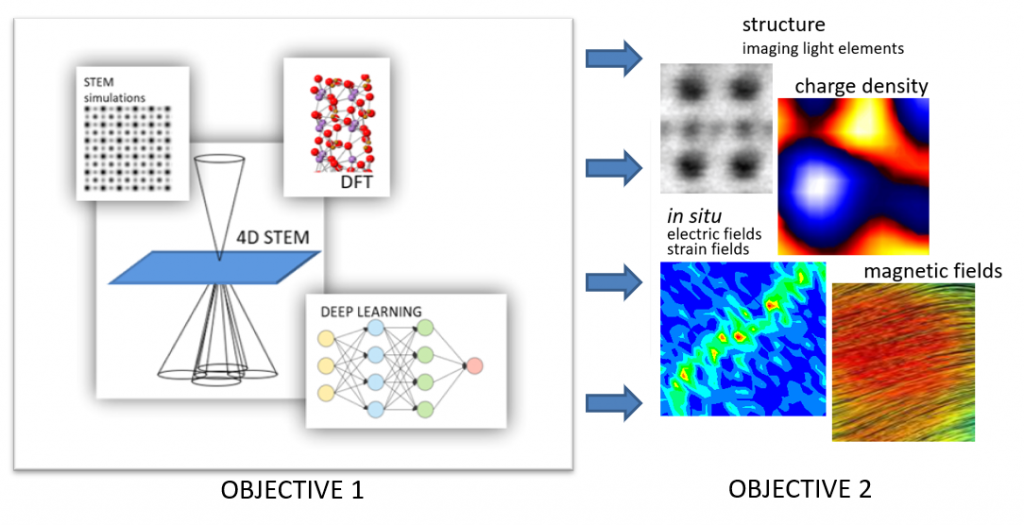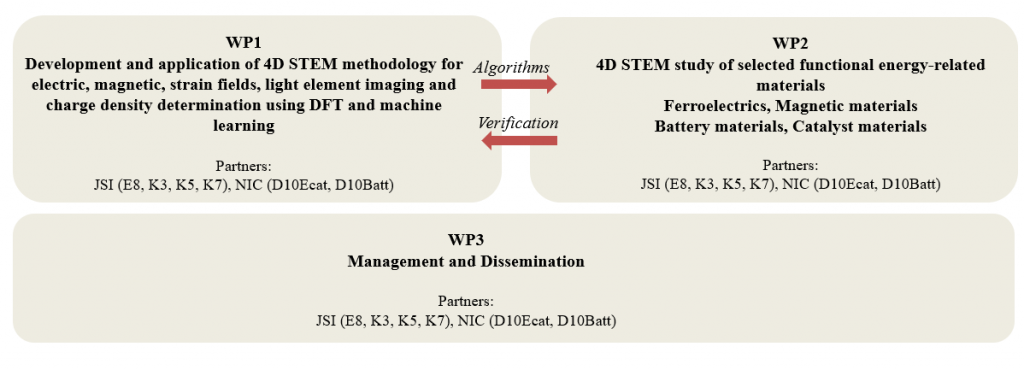TITLE: 4D STEM of energy related materials down to quantum level
PERIOD: 1. 10. 2022 – 30. 9. 2025
COORDINATOR: Prof. dr. Andreja Benčan Golob (K5)
ORGANISATIONS:
Jozef Stefan Institute, JSI: Electronic ceramics department – K5, Department for Nanostructured materials – K7, Physical and Organic chemistry – K3, Knowledge Technologies – E8
National Institute of Chemistry, NIC: Department of Materials Chemistry, Laboratory for Modern Battery Systems – KI-batt, Laboratory for Electrocatalysis – KI-cat
FOUNDED BY: Slovenian Research Agency

ABSTRACT:
In the proposed large interdisciplinary project, we aim to explore the potential of novel 4D STEM techniques application for in-depth characterization of the selected state-of-the-art functional energy-related materials. Upon the strive for development of sustainable zero-carbon society, a number of functional energy-related materials has found its placing in the emerging green technologies. Li-ion batteries, electrocatalysts, magnetic and ferroelectric materials are found in many of the forefront applications. Contributing to the functional properties of these materials, strain, electric and magnetic fields, combined with the variations in the atomic structure and charge density distribution have a decisive influence on the materials application. Among a number of materials characterization techniques that permit to study these properties, scanning transmission electron microscopy (STEM), and, particularly, newly developed 4D STEM approaches, capable to reach down to the quantum level of individual atoms, stand out. In the proposed project we will establish a 4D STEM methodology platform based on model materials and supported by the first principle calculations and machine learning approaches. This methodology will be applied to the functional materials for mapping strain and electric field, extracting quantitative information on local magnetic moments, mapping magnetic texture, visualization of light elements under low energy beam conditions and charge density distribution mapping. Gaining broader understanding of structure/functional properties relation in such manner will promote a more considerate approach to the design of novel functional materials with enhanced properties.
Objectives:
– development of a baseline 4D STEM methodology platform in combination with first principles calculations and machine learning algorithms suitable for performing the analysis of the structure, various fields, and charge density distribution down to the quantum level
– application of the developed 4D STEM methodology platform to the investigation of complex properties of functional energy-related materials

Work packages:
WP1: Development and application of 4D STEM methodology for electric, magnetic, strain fields, light element imaging and charge density determination using DFT and machine learning
WP2: 4D STEM study of selected functional energy-related materials
WP3: Management

